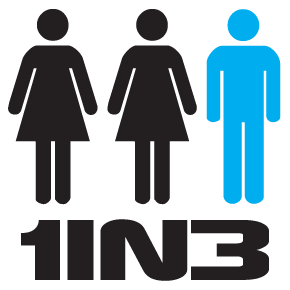'It doesn't have to end here': ACT anti-domestic violence campaign unveiled | Canberra Times

A woman's legs splay motionless on the floor, a man in dress shirt and tie slumps face-down on the ground, a young boy lies sprawled at the bottom of a staircase, police knock at a front door.
It doesn't have to end here.
That's the message behind a powerful new ACT Domestic Violence Prevention Council campaign aimed at boosting awareness of what domestic and family abuse looks like and to draw attention to it as a whole-of-community problem.
Council chairwoman Marcia Williams said the campaign was "very confronting; deliberately confronting" and was designed to compel Canberrans to seek out more information or to have a conversation with a friend, family member or colleague who could be experiencing violence.
"There are too many people in the ACT who think it doesn't happen," she said.
ACT Victims of Crime commissioner John Hinchey hoped the series of posters and videos would challenge misconceptions that domestic and family abuse was a "private matter", limited to physical violence, and only experienced by women in heterosexual relationships.
Mr Hinchey said the campaign, which was funded by the ACT government, aimed at early intervention and halting domestic and family abuse before it escalated to physical violence.
One of the videos was designed to show abuse could also be characterised by a raft of power and control behaviours without physical aggression, but including sexual, emotional, psychological or financial control.
"He puts all my money in his account, he stops me from contacting my family and friends, he even tells our children to ignore me," a woman's voice says.
It also features a second woman saying, "Sometimes he frightens me with how angry he can get, but he's never hit me"; and another, "He makes all the decisions for me but he says that's what good husbands are supposed to do."
In another video, a man speaks of his adult son repeatedly threatening to kill him, while another man says his male partner vowed to "out him" to his friends and family if he threatened to leave him.
The same advertisement also features a woman recalling a man had tipped her out of her wheelchair and refused to help her up, and another man's voice saying: "She tells me that I'm useless and dumb."
Mr Hinchey said the council's recent review of domestic violence deaths in the ACT showed men were also at risk of domestic and family abuse.
"The council wants to recognise that and work towards an inclusive understanding that domestic and family violence crosses social and gender lines of identity, that same-sex couples are just as vulnerable as heterosexual couples.
"Children and women with disabilities are particularly vulnerable, but men are also vulnerable and we must provide opportunities and avenues for men to report abuse."
Mr Hinchey said the council was keenly aware that any loss of momentum gained by a fresh national debate over domestic and family violence in recent years, coupled with bolstered community outrage following a string of deaths in the ACT allegedly linked to family violence, meant the community risked growing complacent.
"The council is aware that despite the funding from the ACT government, and other governments, for domestic violence, it remains a community issue and a community responsibility.
"The message is that domestic and family violence isn't a private matter, it's a public matter and a crime, and we need to keep this at the forefront.
"We shouldn't wait for deaths to occur to keep a strong focus on the issue."
If you or someone you know is affected by domestic or family violence, call the ACT Domestic Violence Crisis Service 24-hour crisis line on 6280 0900. In an emergency, call 000. See helpstopdv.org.au.

